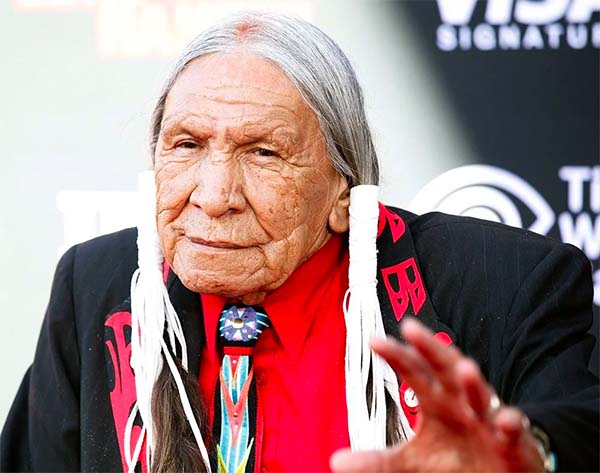
- Details
- By Rich Tupica
LOS ANGELES — Earlier this week, Elder Saginaw Grant issued a statement on dealing with social distancing during the COVID-19 pandemic.
Grant, 83, is widely known as a Native American actor, dancer, motivational speaker and the Hereditary Chief of the Sac and Fox Nation. He is also a veteran of the United States Marine Corps. His long resume includes roles in 2013’s The Lone Ranger and Breaking Bad. A 2014 mini-documentary, The Legacy of Saginaw Grant (streamed here on YouTube) offers up some insight on the icon. Here is his statement: “This isolation is temporary for most, but for many elders what you are now experiencing is the norm. It is human nature to come together in times of crisis, but this time we are having to stay apart for the health and safety of one another. Take this opportunity to get to know yourself and what’s important. Take this time to reflect on God’s purpose for you. Check on others and let them know you care. Take a moment to find the beauty in a negative situation...spend extra time with someone and let them know they’re loved. Recognize the opportunities you have in every situation, know that your choices in a crisis define who you are, let this define you in a positive light.” -- Saginaw Grant
More Stories Like This
Native News Weekly (August 25, 2024): D.C. BriefsUS Presidents in Their Own Words Concerning American Indians
Native News Weekly (December 14, 2025): D.C. Briefs
Wounded Knee Massacre Site Protection Bill Passes Congress
Two Murdered on Colville Indian Reservation
Help us defend tribal sovereignty.
At Native News Online, our mission is rooted in telling the stories that strengthen sovereignty and uplift Indigenous voices — not just at year’s end, but every single day.
Because of your generosity last year, we were able to keep our reporters on the ground in tribal communities, at national gatherings and in the halls of Congress — covering the issues that matter most to Indian Country: sovereignty, culture, education, health and economic opportunity.
That support sustained us through a tough year in 2025. Now, as we look to the year ahead, we need your help right now to ensure warrior journalism remains strong — reporting that defends tribal sovereignty, amplifies Native truth, and holds power accountable.
 The stakes couldn't be higher. Your support keeps Native voices heard, Native stories told and Native sovereignty defended.
The stakes couldn't be higher. Your support keeps Native voices heard, Native stories told and Native sovereignty defended.
Stand with Warrior Journalism today.
Levi Rickert (Potawatomi), Editor & Publisher
